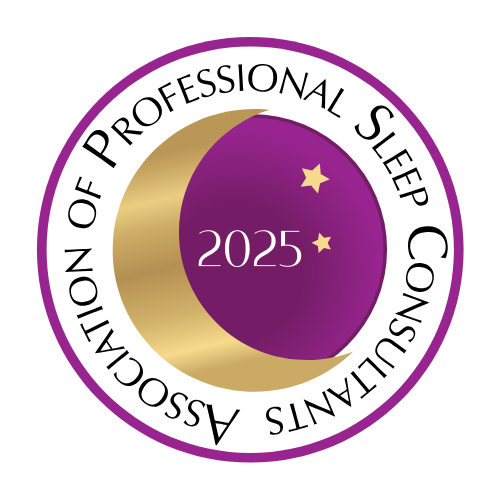A good sleep schedule from 4 months up to 1 year old
Author Name: Heidi Holvoet, PhD
Intro Newborn 1-4 months 4-12 months
A
well-suited
sleep
schedule
at 4 to 12 months helps your
baby get
into a healthy rhythm, take restful naps and start sleeping through the
night.
Between 4 and 6 months already, the sleep schedule becomes more regular. It is the time when the chaos of the first months finally seems to make place for more structure. Many parents and babies really enjoy this time as it brings a bit more rest and time to enjoy each other in a relaxed way.
Your baby may or may not quite sleep through the night yet. You may still be looking for longer naps, or more suited nap and night bed times.
Stan's mom about his sleep schedule ...
I was just
about
to give up
on getting my son to sleep regularly during the day. We had started
from
the first weeks to create regular nap time possibilities. That usually
went well for a couple of days but then he changed a feeding time and
the schedule was all gone again.
But then he turned
six
months
old and, as if by magic,
he started napping at these regular times. He even got so used to these
naps that he really needed them. When he missed a nap for some reason,
he could be really cranky later on ..."
Do keep up with the sleep schedule , and reinforce it, because it continues to structure your baby's sleep patterns. It's what helps her develop the sleeping skills she needs: easy settling into longer stretches and independent self soothing when waking up at night.
In a typical sleep schedule between 4 months and one year old a baby will have:
- 2 or 3 naps (up to 4 shorter ones under 6 months old): mid-morning, early afternoon and/or late afternoon
- a 12-hour "night" with one or more feeds - or no feedings for some
Even if it helps your baby sleep, the newly found regularity may give you some restrictions too. You might be less mobile and/or find yourself re-scheduling your day around nap times.
It may not even be possible to stick to the schedule when you have older children and/or work arrangements. Therefore it remains important that you schedule sleep times that suit you well.
Let's have a look at schedule tips for naps first,
then on to the nights ...
Sleep schedule tips for naps
Naps remain an important part of the sleep schedule. How many hours sleep she needs varies a lot from baby to baby but regular rest moments during the day keep her from getting over-tired. A baby who is over-tired at night will find it difficult to settle. It will then also be more difficult to sleep through the night.
Remark
: The
tips below focus on
a strictly timed nap schedule.
See my
nap
guide
for
complete instructions to set up
this or another type of routine
(pattern, baby-led, etc.) depending on your baby's specific needs.
For a good nap time schedule:
-
Stick to fixed nap times
Be determined : when it's nap time, it's nap time. Put your baby to bed (or cot, or stroller, or sling ...), even if you are unsure she's very sleepy this time. It is the regularity of the schedule that will help her sleep.
 A good
illustration
is that many babies that
do not nap easily at home, suddenly take good naps when they go to
daycare
or creche. That is because there is usually a strict scheme and
- not in the least - there is no other option. The carers usually don't
have the time to help each baby nap individually.
A good
illustration
is that many babies that
do not nap easily at home, suddenly take good naps when they go to
daycare
or creche. That is because there is usually a strict scheme and
- not in the least - there is no other option. The carers usually don't
have the time to help each baby nap individually.
Of course you are not a creche. If your baby is very easy with sleeping at nap times, you can be pretty flexible and shift nap times with about half an hour or so. If your baby is not easy with naps, try to be as strict as within ten minutes, it can really help her.
Also, towards one year old, many babies will go from three to two naps, or from two to one.
-
Experiment with nap times
If your baby has a difficult time settling or sleeping a longer stretch, it is a good idea to experiment a bit with the nap time. Move it forward or backward in time , and see what happens.
When my girl was 8 months old, we shifted her nap to one hour earlier than usual. She suddenly had three-hour naps! Before it was barely an hour.
Of course, with every experiment, give it a week or so to see what happens before changing something again.
-
Do not skip (all) naps in the hope of a longer night
When a baby sleeps poorly at night, it can seem like an obvious choice to skip a nap, or all naps during the day. However that usually does not help. It just makes a baby overtired , and that results in worse nights.
Skipping a nap can be a good idea in some situations though. For example, if your baby has been taking three naps a day for a long time, and suddenly starts waking up earlier in the morning. Then one less nap can help, but always keep ensuring that she doesn't become too tired at the end of the day.
Sleep schedule tips for nights
Many parents find their baby sleeping through the
night
around 6 to 12 months, but many also continue to have one or several
night feedings. A lot of it will depend purely on their physical ability to
sleep for longer without food or attention. But you can create the best chances.
For a good night time sleep schedule:
-
Stick to a fixed night bed time
Also here, be determined . Light or dark outside, tired or not tired: bed time is bed time. This may seem more strict than it is, no need to time your baby with a stopwatch of course.
Just keep the schedule regular and recognizable for your baby. It will help her to the best sleep.
-
Experiment with night time bed times
New parents may find this surprising, but most parents including myself have experienced this, and it's backed up research. If your baby's usual bed time for the night is say 9pm and she has two or three awakenings during the night. Then shifting the bed time to earlier , even quite drastic to 7.30pm, can result in a wonderful sleep through night!
This is not a magical formula that always works, but it does often, and therefore definitely worth a try. You can also go earlier by just half an hour, see what happens, then the next week another half hour ...
Naturally, do not try out a new bed time every other night. Always give it a week or so before you will see the effect. It is also best to experiment in a period when your child is not ill, or teething.
-
Do not delay night bed time in hopes of a longer night
Although it seems logical to sleep until later if they go to bed later, in general that's not how it works and more often than not it has the inverse effect, caused by over-tiredness.
Related Articles
Help Your Baby Sleep Through The Night in 3 Simple Steps
A bedtime routine helps baby sleep regularly
Finding
a regular sleep schedule
for your baby
towards one year old usually is not too difficult. If you remain
determined,
but also flexible
enough to keep the schedule pleasant for
both of you, you are helping your baby a long way towards good sleep.
Do not worry if things still seem chaotic to you. A lot is going on in baby's life: teething, discovering their surroundings, learning to turn over, crawl, preparing those first steps, ...
That is a lot to cope with for a little child and can affect her sleeping. With a good sleep schedule you have the best chances to find good sleep along the way.
Sadly, many (!) different causes can keep disrupting your nights. My No-Tears Sleeping Through the Night guide helps you assess these and gives you the no-cry techniques to avoid any unnecessary awakenings.
Intro Newborn 1-4 months 4-12 months
Article Author: Heidi Holvoet, PhD - Founder, senior sleep consultant

Heidi Holvoet, PhD, is the founder of the Baby Sleep Advice website and movement, an award-winning author, baby & toddler sleep consultant with 15+ years experience as well as a certified lactation counselor.
Over the years, Heidi has received several awards inluding a Mom's Choice Award (MCA) and National Parenting Awards (NAPPA) for her Baby Sleep Advice website, programs and books. Also, Baby Sleep Advice was awarded "Most Trusted Infant's Sleep Solutions Company 2023" in the Benelux Enterprise Awards 2023.
Heidi continually conducts personal research and participates in continued education and in that way stays up to date with current scientific and pyschosocial infant care.

She is also a member of the Association of Professional Sleep Consultants of which she was one of the earliest contributors. She obtained her PhD degree in physics at the University of Ghent in Belgium.
Heidi is passionate about helping babies and their parents sleep more and better, with her trademark approach that has been proven and praised time and again by parents worldwide to be effective and truly no-tears. Respect for you as a parent and your baby, is at the heart of Heidi's warm and kind support. Her approach always keeps in mind a baby's needs and abilities at any given age, is based on pediatric science and the most up to date knowledge in infant care and sleep science.
As well as the award-winning baby sleep programs, Heidi offers popular 1:1 consults and easy-access 30-minute SOS Sleep sessions.

Self Soothing
by Heidi Holvoet, PhD

What to do when your baby wakes every hour
by Heidi Holvoet, PhD

Separation Anxiety
by Heidi Holvoet, PhD

Colic
by Heidi Holvoet, PhD

Why does my baby wake up every hour?
by Heidi Holvoet, PhD

 A good
A good

